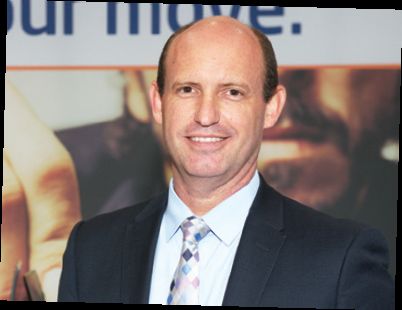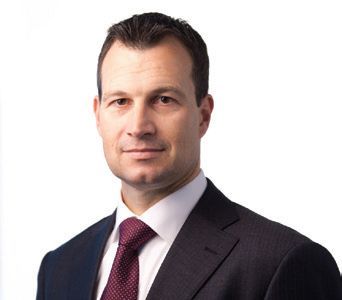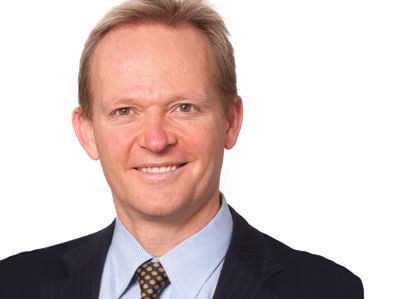Lenders and aggregators have been extremely vocal on the subject of diversification and its ability to safeguard brokers’ businesses and ring-fence their clients
Brokers may have grown tired of hearing about diversification by now. It’s a common refrain from lenders, aggregators, business coaches and industry pundits. But amidst all the noise is a fundamentally sound philosophy: diversifying your revenue base dilutes your risk and protects your income from future shocks to the industry.
In addition to protecting brokers, industry leaders say consumer trends are shifting toward diversification. Consumers are increasingly demanding a more holistic financial services solution, and will be drawn toward those who offer it.
ING Direct executive director of distribution
Lisa Claes said borrowers forming a relationship with a broker expect that relationship to encompass a broad array of financial service.
 Lisa Claes
Lisa Claes
“Consumers have a more holistic appetite. They expect if they tell a broker at the beginning of their financial lifecycle a lot of information about their needs and their finances and a relationship is formed that the broker will use that in a responsible and intelligent way to further that relationship. As ING Direct speaks a lot about, use that opportunity to provide a more diversified offering,” she said.
Claes recently told a Deloitte roundtable that brokers are particularly well-positioned to capitalise on this emerging consumer mentality. As one of the first touch points in a consumer’s lifetime financial journey, brokers have the chance to be in on the ground floor of building a trusted relationship, she suggested.
“Brokers are there the first time a customer seriously starts thinking about finances, when they buy a home, which usually happens before they insure, invest or retire. It’s a great opportunity to put in the groundwork for further and fuller financial advice throughout the customer’s entire financial life cycle,” Claes said.
Chess Wealth Partners director
Matt Mercer agreed, and said clients often take it for granted that a broker will be able to provide for the broad range of their financial needs.
 Matt Mercer
Matt Mercer
“Most clients don’t understand our industry, so they don’t know why there are certain limitations on things. They create a relationship with a trusted person,” he said.
And the evolution of client expectations isn’t the only driver behind diversification.
NAB Broker general manager
Steve Kane told the Deloitte roundtable that the evolving role of brokers lends itself to serving a more holistic range of financial needs.
 Steve Kane
Steve Kane
“We’ve moved enormously with NCCP over the last little while… We have moved away from the order takers in the market that simply filled in an application, and sent it to the bank that they thought would give them the highest commission, or the easiest approval,” he said.
This move away from being “order takers”, Kane said, means brokers are uniquely positioned to gain a clear picture of a client’s full financial situation.
“Now brokers are conducting proper investigations with the customer, identifying their needs – and it should naturally follow that they will seek to meet all those needs.”
Kane said the bank has already seen evidence in internal surveys of brokers taking hold of this opportunity.
“What we have seen is that there’s an increased usage of brokers outside the services of mortgage lending,” he said.
FAST CEO
Brendan Wright said the aggregator is working to enable its brokers to better offer these services.
 Brendan Wright
Brendan Wright
“For the next six to 12 months it will be more of the diversification story at FAST, supporting brokers across commercial, resi and asset finance, but also financial planning and insurance as well,” he said.
Wright pointed to an initiative launched by the aggregator which he said helps brokers broaden both the services they can offer to clients and their revenue base.
“[We’ve got] a program called Partner Planner where we partner up brokers with financial planners and also in the insurance space. We’ve got some good alliances there as well.
“We’re helping brokers diversify their income stream, but more importantly meeting the needs of their clients,” Wright said.
IDENTIFYING OPPORTUNITIES
While it’s easy to tell brokers that they should diversify, the directive begs the question of what areas brokers should look to. For Wright, the area of biggest opportunity is apparent.
“The big growth area will be and is commercial. This is not only commercial property finance per se; it’s funding businesses and helping businesses grow. [There are] 2.8 million small businesses in this country and they’re looking for help, guidance and advice from finance professionals. That’s the opportunity that we see evolving over the next few years. The same trend that’s happened around almost 50% of new mortgages being written by the third party, there’s a groundswell also happening in the commercial space,” he said.
And business owners also open up opportunities for brokers in the more traditional residential space as well, he said.
“Business owners live and invest in houses as well. It’s a great opportunity for brokers to meet the needs of not only consumers and investors, but business owners as well,” Wright said.
La Trobe Financial senior vice president and chief investment officer
Paul Wells agreed that massive opportunities exist in commercial lending. Wells said commercial lending in self-managed super funds in particular was an area for growth.
 Paul Wells
Paul Wells
“It’s a topic we’ve been talking about quite a bit lately because we see it as more than a product solution. We see it as quite a strategic solution for brokers going forward. If you can do a self-managed super residential deal, then you can do a self-managed deal in commercial as well. It’s not that much more complicated at all. That makes it a good segue for brokers into commercial as a first step, which is a great opportunity for diversification,” Wells said.
And like more traditional commercial property deals, Wells said many brokers already have a client base for which a commercial
SMSF solution could be valuable.
“It’s actually a product that you can market to your existing client base. It’s an opportunity immediately to diversify income and growth within your existing distribution network. That’s also an important opportunity to service those clients so other people can’t. After a birth period of maybe four or five years, we think that self-managed super is now a maturing product with a reliable solution and it’s going to grow. It’s here to stay, so it’s really an important strategic growth for brokers into this space,” Wells said.
HOW TO GO ABOUT IT
Much of the talk around diversification has centred on the need to look to other revenue streams, but there has been little discussion about how brokers can practically implement diversification in their own business. Wright said FAST tries to tailor solutions to the individual broker, and help its members strategise how best to get involved in opportunities beyond residential lending.
“It’s all of that. It really depends on the strategy of the individual broker. At FAST we spend the time talking with the broker to understand their particular strategy and what they’re doing to meet the needs of their clients,” he said.
He said this could range from offering a diversified product base to a more hands-on approach in helping brokers broaden their offering to clients.
“If you look at asset finance, for example, we’re known for being a strong aggregator in asset finance but we also have a quality referral model for those brokers who just want to have a simple way of referring their client, have their client be protected and have that need met without being accredited in asset finance. It’s about taking the time to understand that broker’s particular strategy, and then providing the help, guidance and advice to pass it on to their clients,” he said.
Mercer said Chess Wealth takes a novel approach of offering brokers a full financial planning solution without the grunt work.
“What we’ve developed is a structured franchise system that sits alongside their brand, and it allows them to have the full benefit of owning a full financial planning and property advisory business where the grunt work, the strategic advice, the strategy support, the licensing and all that is handled by us,” he said.
Mercer said the “co-branded proposition” allows brokers to offer holistic financial services by removing some of the hurdles that have kept them from exploring opportunities.
“The biggest reasons they haven’t [diversified] – or haven’t well enough – are product knowledge, systems and understanding of the industry. So they generally have a referral model or an alliance model, and that’s really building someone else’s business,” he said.
Mercer argued that a referral model often took power out of the broker’s hands.
“They lose control of the client ultimately because it becomes someone else’s client; a financial planner’s client. They’re not building a valuable asset, a saleable asset or a trail. They’re building someone else’s business and brand,” Mercer said.
However brokers choose to go about diversifying their offering, Wright said consumers are increasingly expecting a high level of service from finance professionals.
“Consumers are looking to go to a professional who can provide help, guidance and advice around whatever they might be doing, buying a house, investment property, etc. Also, more and more business owners are coming to brokers to look to get their needs met. That might be growing their business, and then what comes out of that is the opportunity to meet the personal needs of those business owners as well,” he said.
And Mercer argued that brokers needed to offer additional value in order to protect their client base.
“The mortgage broking industry traditionally has been a transactional industry, so the client is susceptible to the best rate, television advertising, their accountant starts doing mortgages or they meet a financial planner who does mortgages. It’s not hard to lose clients as a broker because unless you have a reason to go back to them with an additional service, you really are transactionally based.”
This feature has been lifted from Australian Broker issue 11.11. To read more, please subscribe.






